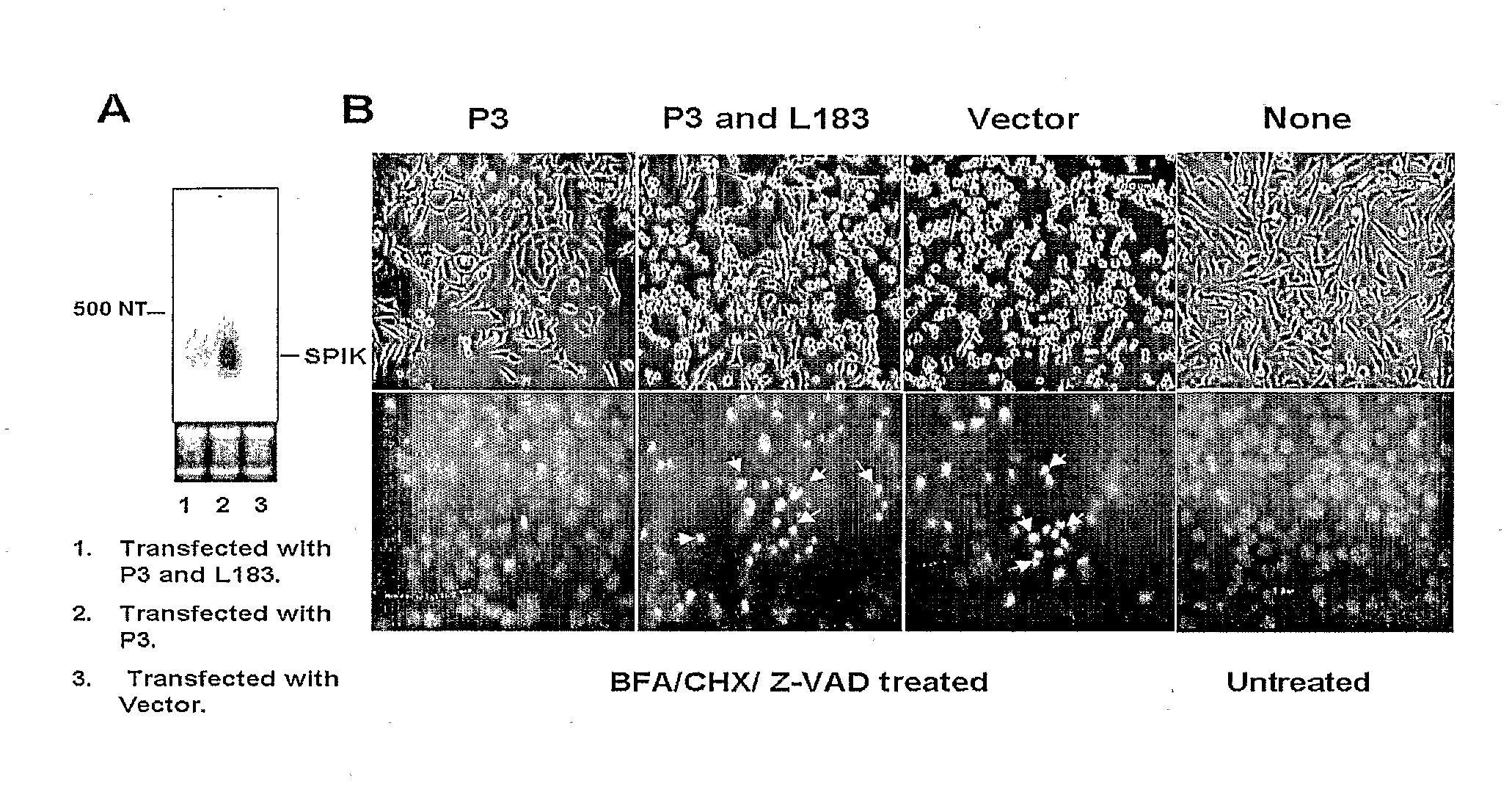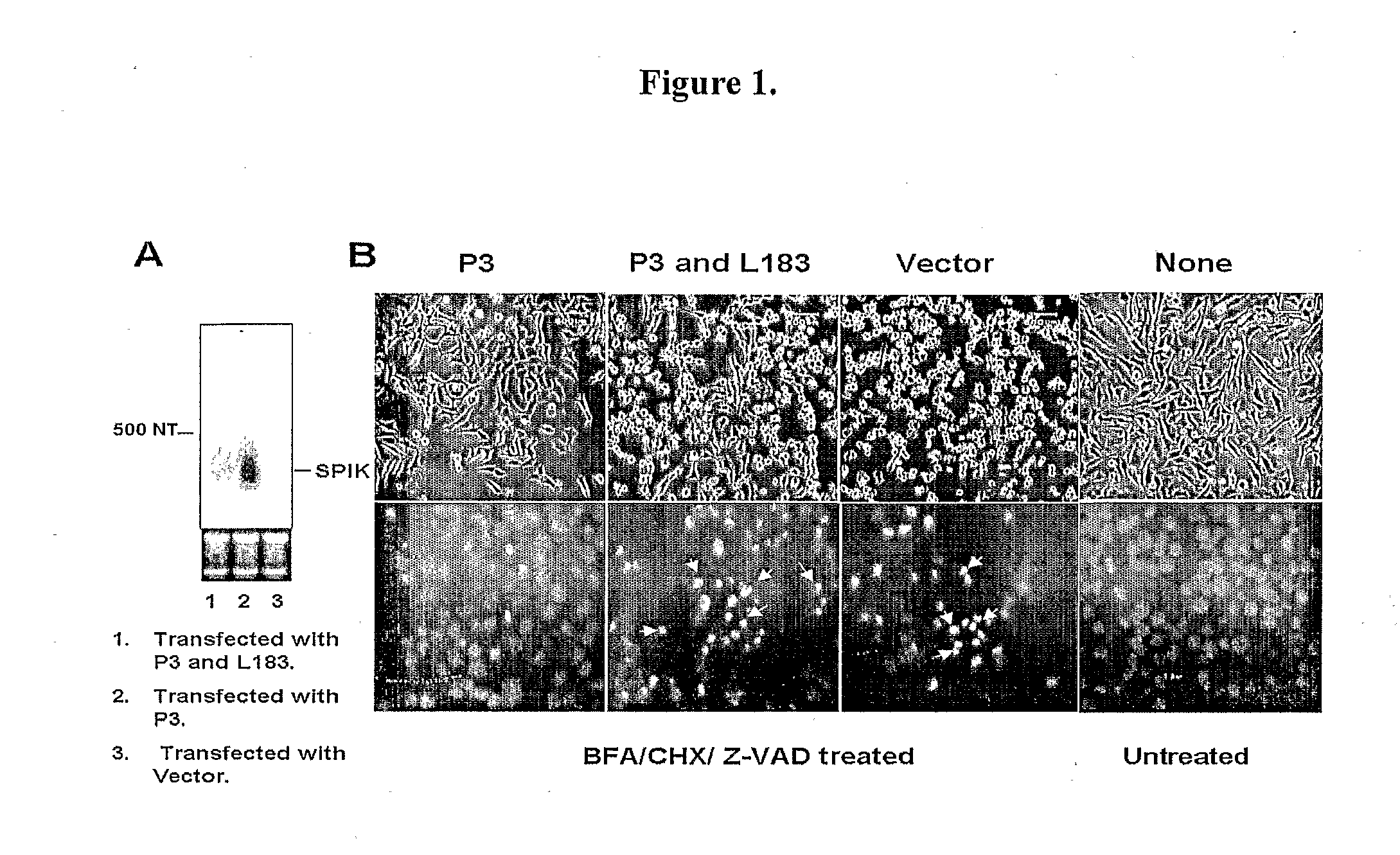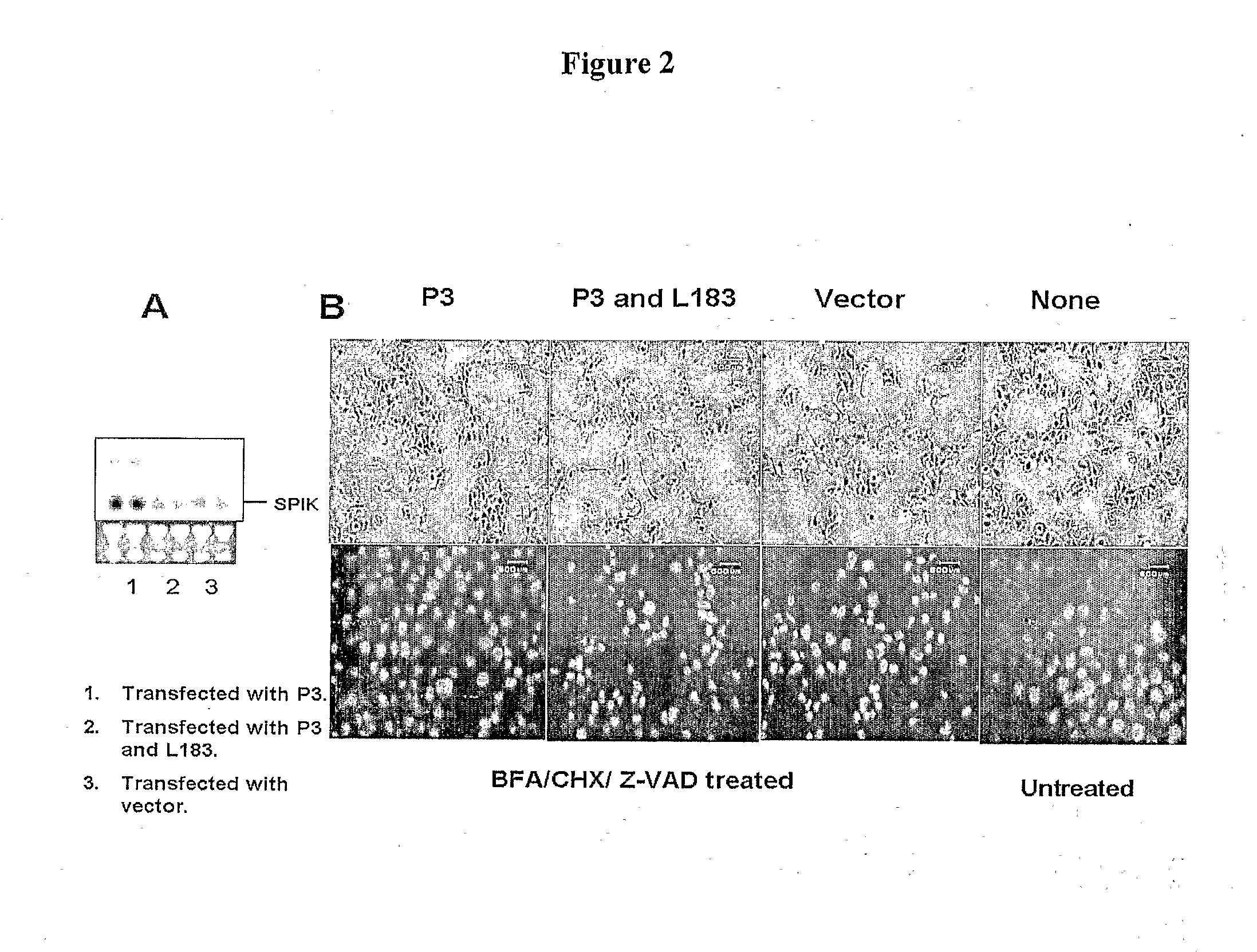Identification of modulators of serine protease inhibitor kazal and their use as Anti-cancer and Anti-viral agents
a serine protease inhibitor and kazal technology, applied in the field of serine protease inhibitor kazal, to achieve the effect of restoring the sensitivity of cells to cell apoptosis and suppressing spik expression
- Summary
- Abstract
- Description
- Claims
- Application Information
AI Technical Summary
Benefits of technology
Problems solved by technology
Method used
Image
Examples
example 1
High throughput screen system. SPIK will be made through recombinant technology and purified by HPLC. The fluorescence substrate for trypsin, a casein derivative that is heavily labeled with the pH-insensitive, red-fluorescent BODIPY® TR-X dye (excitation / emission ˜589 / 617 nm), is brought from Invitrogen (Carlsbad Calif.) and solved in the reaction buffer for use. The high-throughput screen is carried out in 96-well formats. The procedure as:
[0307]1. 10 μl tested compounds are added to the 96 well plate, each well containing one compound, at the concentration started with 0.5 μM.[0308]2. 40 μl recombinant SPIK and trypsin mixture are added to the wells, at the ratio that just completely inhibits the trypsin activity (pre-determined). Plate is incubated at 37 C, room temperature for 30 minutes. The 3 wells without compound serve as negative controls and 3 wells without compound and SPIK serve as positive controls for trypsin activity.[0309]3. 100 μL1 reaction buffer containing the fl...
example 2
SPIK is a SPDCA inhibitor. The first evidence to suggest SPIK is an apoptosis inhibitor is from transfection of SPIK into HeLa cells. The reason for using HeLa cells for transfection is that SPIK expression in this cell line is constitutively at undetectable levels and hence creates no ambient background [FIG. 1A, lane 3].
[0312]HeLa cells were seeded into a 6 well plate at a density of 1×105, and then transfected with the plasmid P3 that contains the entire SPIK gene under the control of HCMV promoter. After 3 days, the transfected cells were split into two daughter 6 well plates. Cells were then cultured another 3 days. SPIK RNA in one of two daughter plates was examined by Northern blot. At the same time cell apoptotic death was induced in a control plate by treatment of cultured cells with BFA / CHX (5 mg / ml / 10 mg / ml). Although Egger et al. reported BFA / CHX generally induces SPDCA, in order to ensure that CDCA is blocked, 100 mM Z-AVD was added. Z-VAD is a pan-caspase inhibitor, pr...
example 3
[0318]Stable cell line over-expressing SPIK is more resistant to SPDCA. A stable cell line producing higher amounts of SPIK was constructed. Huh7T cells were transfected with the plasmid containing the SPIK coding sequence with the selection marker Neo gene. After 3 days, cells were treated with 1 mg / ml G418. Surviving cells were reseeded and colonized. Finally eight G418 resistant cell clones were selected, and continually cultured and amplified in G418 medium about 2 months. The SPIK expression in those colony cells was then analyzed by Northern Blot with probe specified for SPIK. No difference, either in morphology and growth, was found between these clones with its parental Huh7T cell [FIG. 5 untreated]. This suggests that those cells fundamentally are same as parental cell. Two of eight: S2-3 and S2-4 produced very high amount of SPIK were further studied in apoptosis analysis. Compared with parental Huh7T cell, both S2-3 and S2-4 produces 3 fold more SPIK based on Northern Blo...
PUM
| Property | Measurement | Unit |
|---|---|---|
| fluorescent | aaaaa | aaaaa |
| resistance | aaaaa | aaaaa |
| density | aaaaa | aaaaa |
Abstract
Description
Claims
Application Information
 Login to View More
Login to View More - R&D
- Intellectual Property
- Life Sciences
- Materials
- Tech Scout
- Unparalleled Data Quality
- Higher Quality Content
- 60% Fewer Hallucinations
Browse by: Latest US Patents, China's latest patents, Technical Efficacy Thesaurus, Application Domain, Technology Topic, Popular Technical Reports.
© 2025 PatSnap. All rights reserved.Legal|Privacy policy|Modern Slavery Act Transparency Statement|Sitemap|About US| Contact US: help@patsnap.com



